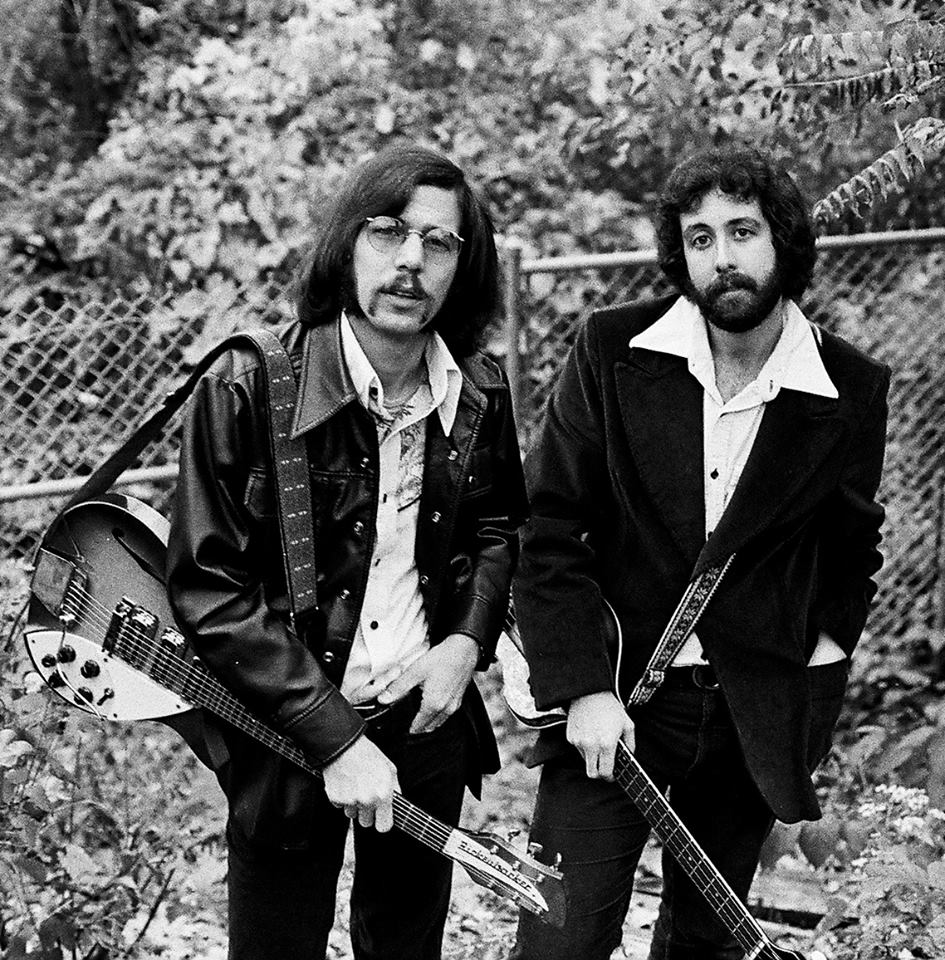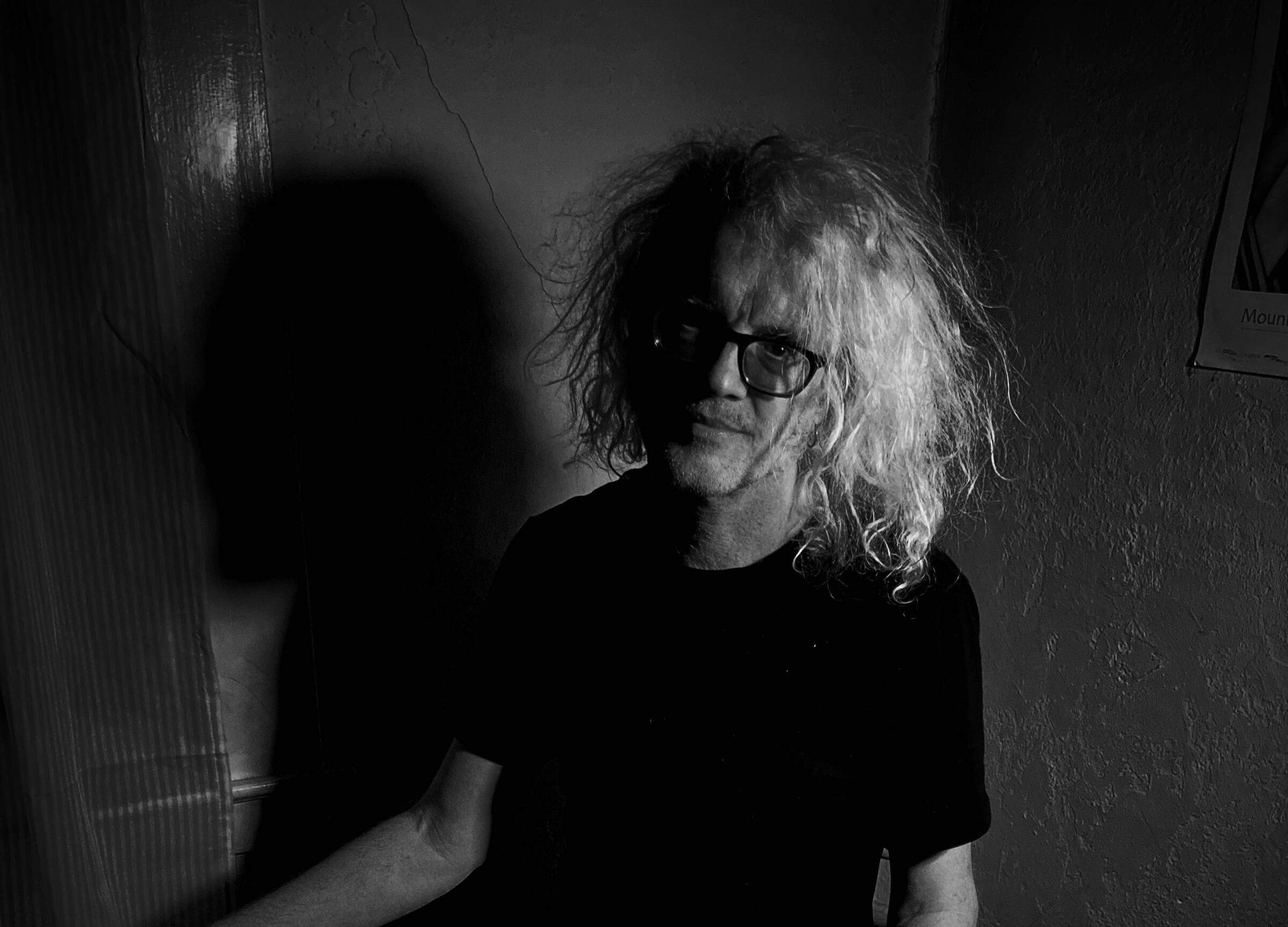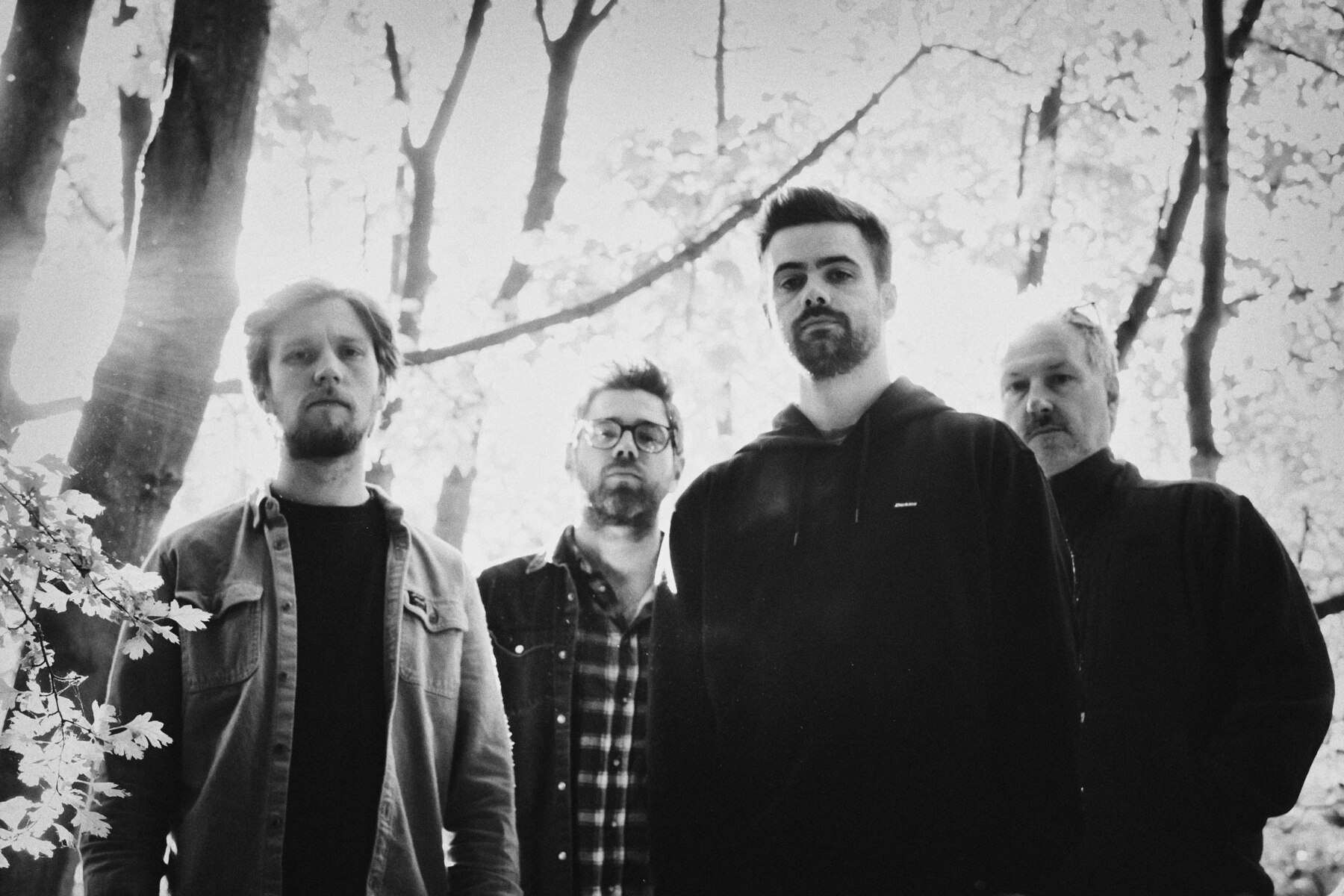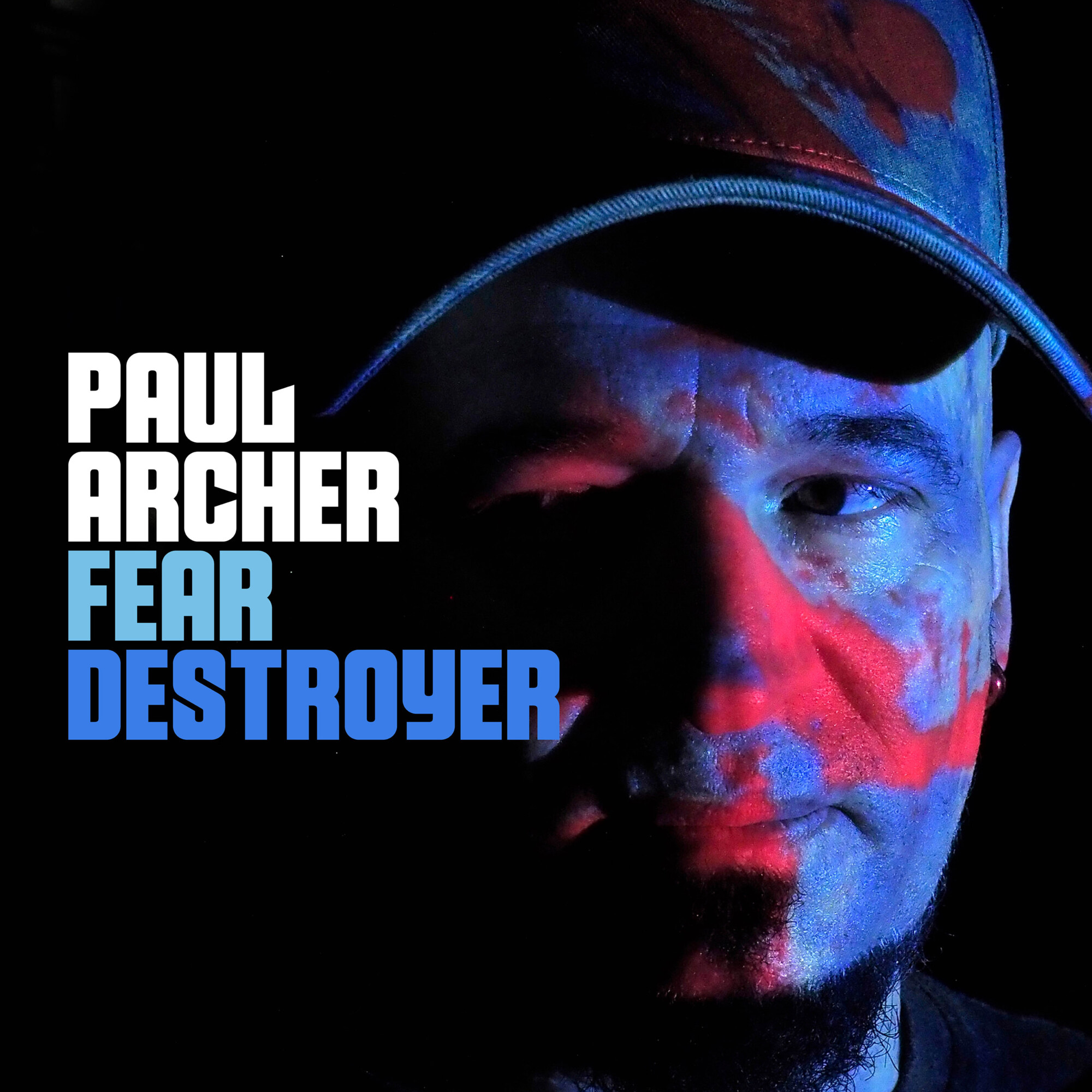Athanor | Interview | “Flashback”
Athanor, an obscure duo with a treasure trove of hidden gems, unveils an extraordinary collection of unreleased material.
Recorded at their state-of-the-art home studio, the tracks embody the duo’s signature fusion of Beatle-esque psychedelia and fuzz-drenched folk-rock. Featuring shimmering 12-string Rickenbackers and Lennon-inspired vocals, Athanor perfectly captures the spirit of the ‘70s Chicago underground scene, delivering a sound that’s both timeless and captivating.

“A hill surrounded by mist”
Athanor was a completely unknown duo until Guerssen Records from Spain contacted you. How did they find out about your music? In the 1970s, you released only three singles, but there was much more material left unreleased.
Greg Herriges: I’m an English professor. Four years ago, I received an email on my college office computer from a young man in France, Alexandre Mansuy, who asked if I had any original vinyl Athanor 45 RPM discs to sell. He said he already had the CD compilation. I didn’t know what he was talking about. We had not given permission for any of our songs to be included on any compilation. We had been pirated by a record label in England. (Someone is still collecting royalties for my song ‘Urizen’ on iTunes, and I own the copyright.) After that, record labels began inquiring if we had an album. We didn’t, but we had master tapes of 8 studio songs and many demos.
Rick Vittenson: We eventually got a copy of the CD compilation, which stated that Athanor was “actually Greg Herriges and…” not me!! Interestingly, they mentioned a friend of ours who never appeared on an Athanor recording but did play on a couple of tracks with my previous band.
Greg: Steve Albini, who produced Nirvana’s ‘In Utero,’ baked some of our tapes and transferred them to WAV files at Electrical Audio Studios. (You have to actually bake old tapes before you attempt to play them.)
We booked time at Paragon Studios in Chicago, remastered the songs, and came up with a 12-track album, ‘Flashback.’ Guerssen Records of Spain signed us, 40 years after the fact, and we received recognition around the world. It was quite a whirlwind. Then Guerssen signed us for a second album deal: ‘Inside Out: The Demos, 1973-1977.’
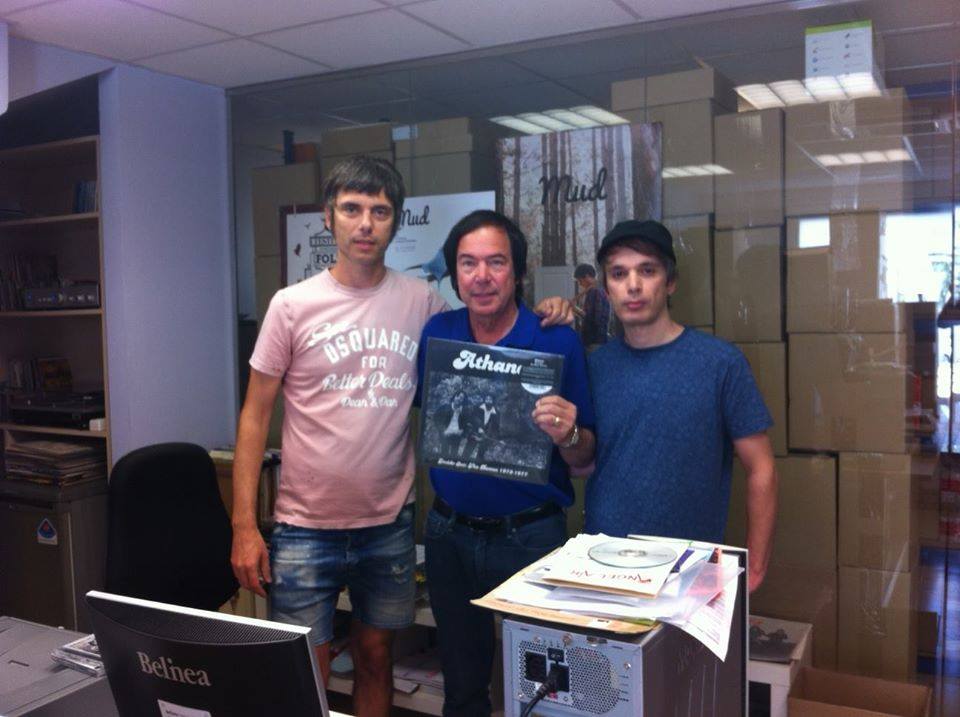
What’s the story behind the formation of Athanor?
Greg: Rick and I were in a band together called 4-to-Go in high school. It was great fun, and we were one of the known high school bands in Highland Park, Illinois, a suburb of Chicago. In 1972, when we were in college, we got together again to form Athanor—a sort of psychedelic folk duo, but we added a drummer, bass player, and lead player to make a single: ‘Inner Space’ / ‘Graveyard.’ I was writing up a storm at the time—many songs. I was only 22, but I was married, and my wife bought me a Guild 12-string for Christmas. I began hearing melodies everywhere when I began playing that guitar. Because I had recently started teaching high school, I had a real job and real money. We rented a townhouse and turned the first floor into a home recording studio—wonderful equipment: TEAC 3340 reel-to-reel four-track recorder, Panasonic two-track reel-to-reel recorder, Sansui quadraphonic amplifier, JBL speakers. I think I recorded almost every day.
The name Athanor I got from a book of poetry by Penelope Rosemont. According to Lewis Spence in The Encyclopedia of Occultism, Athanor is “a hill surrounded by mist,” and on this hill are “two black stone reservoirs,” one containing wind, the other rain. It’s all very mysterious. I just liked the name.
How old were you when you began playing music, and what was the first instrument you played?
Greg: My mother enrolled me in a music school when I was eight years old, and I had a personal guitar teacher. I liked it, but the songs he taught me were dumb (‘Birmingham Jail’), and I didn’t like the method he used. I must say, though, that I learned how to read music because of that fellow. I quit after seven months. I began playing the guitar again when I was 14. I had a Danelectro that I traded in for a three-quarter length Rickenbacker. That little Maple-Glo Rickenbacker gave me a lot of confidence. I was one of the few teenagers in town who owned one.
Rick: My mother was a music teacher, so there was always music and musical instruments around our house. We had a baby grand piano that I started playing around with when I was eight years old. I took lessons, but never really took it seriously. Over the next few years, I learned how to play trumpet, clarinet, and the drums, playing in school orchestras and singing in school choruses. I have to admit that I played all the instruments very poorly, but I really enjoyed singing. It wasn’t until I was 10 years old that I got my first guitar. Like Greg, I took some lessons, but I didn’t much care about the songs I was being taught. Guitar teachers back then weren’t the slightest bit interested in rock and roll. So, equipped with a bunch of chords, I quit taking lessons and started teaching myself how to play songs that were being played on Top 40 radio. For the first time, I was playing music I could relate to, which made learning much more enjoyable.
What inspired you to start playing music? Do you recall the first song you ever learned to play?
Rick: I had older cousins who were really into rock and roll. As a result, I was exposed to some amazing music as a young boy that I took to immediately. I heard a lot of Elvis Presley, but didn’t feel much inspiration until I heard The Everly Brothers. I still remember being at my cousin Maxine’s house when I heard ‘Wake Up Little Susie.’ It was the first time I was aware of harmony, and it blew me away. I started listening to the radio and discovered amazing singing groups like The Fleetwoods, whose ‘Mr. Blue’ introduced me to the complexity of backup harmony. From that point on, I was much more interested in what the backup singers were doing than the lead singer. From there, it was on to doo-wop and Dion and the Belmonts. And then The Four Seasons hit the scene. I think the first song I taught myself on guitar was “Sherry.” I could only play a few chords at that time, but it was enough in those days. It wasn’t until The Beatles that I got interested in playing lead guitar. A bit later, I got serious about playing piano, learning by playing McCartney piano tunes over and over again, note-by-note.
Greg: I was originally inspired to sing by Dion and Del Shannon when I was eleven. The songs ‘Runaround Sue’ and ‘Runaway’ were two of the finest I had ever heard. A few years later, The Beatles arrived and I was a believer. I learned to play the guitar, and my two first songs were ‘Teenager in Love’ and ‘Twist and Shout.’ For me, those two were like rock and roll gospels. Many years later, in 1976, at the Ivanhoe Theater in Chicago, Dion called me up on stage from the audience to sing “Teenager in Love” with him. I had interviewed him that morning, and he was kindly repaying me. We brought the house down, and he gave me a really cool low-five hand slap. I think I still live in that moment. It became permanent for me.
Let’s focus on two recent archive releases: ‘Flashback’ and ‘Inside Out: The Demos, 1973-77.’ What can you tell us about the material that appears on those two compilations?
Greg: Well, it was all original material from our first three singles and other tracks we had recorded over the years. I’m a writer; it’s what I do, and I had a lot of songs accumulated. Most of the songs were written and recorded when we were in our twenties. But there was a time in the early 1980s when Rick and I once again went into the studio and did a few numbers—’Rock Me, Roll Me’ and ‘Wonder Why I’m Sick.’ Then again, years later we went into a studio and did a track I had just written called ‘Like a River Flows’—just the two of us. My lyrics had matured (because I was getting old!) and it’s a song about enduring friendship, memories, and (yikes!) mortality.
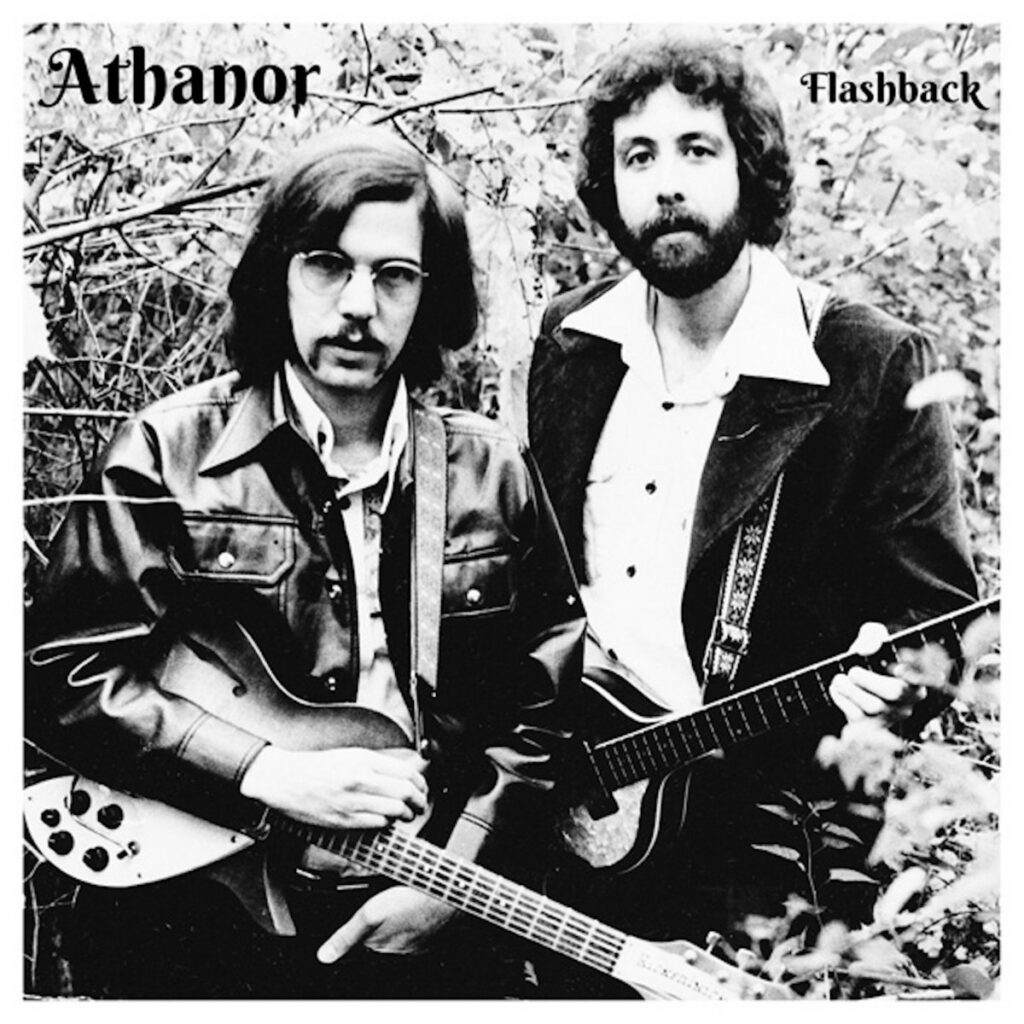
On ‘Inside Out,’ we wanted to add a song called ‘Roll Me like the Ocean,’ which I had written in 1976, but only a portion made it through the baking process. So we recorded it from scratch with bass player John Belpedio and drummer Marty Jacobs. Jeff Murphy of Shoes joined us on background harmonies, and he even wrote one set of liner notes for us. Jeremy Cargill did the other set. (Rick and I are both big Shoes fans, by the way.)
Joe Connors at Paragon mastered both of those albums, but John Towner of Solid Sound Studios recorded that last song. That’s why we thought of him when it came time to do this new album.
Rick: Athanor has always focused on Greg’s songwriting abilities. However, ‘Flashback’ includes one song that I wrote, ‘Memory (Don’t Fail Me),’ which was also one side of one of our singles.
Why was the release not possible back in the 70s?
Greg: We were unknown, a studio band. We didn’t play live anywhere. I had no desire to. I just wanted to make records, but that is an expensive hobby. I was teaching, and I was in graduate school to get my Master’s degree in Literature. I had a choice: go after music full-time, or be responsible, continue your education, and become a novelist. I chose the latter. I’ll tell you the truth, I’m glad I did. As much as I love music, I also love literature, teaching, and writing fiction.
Rick: I also think the timing was wrong. We were contacting record companies, but they always wanted to fit us into a mold of what was popular at the moment. We were getting advice like, ‘Sound more like The Eagles,’ ‘Sound more like The Captain and Tennille.’ One of my favorite articles about Athanor said that we were power pop pioneers, unaware that we had any peers. We were trying to get a record deal at a time when power pop was still in its formative stage, and even the best of those bands at the time (none of which I knew existed at the time)—The Raspberries, The Dwight Twilley Band, Shoes, Big Star—had a somewhat cultish following.
But what you managed to release were three 45s between 1973 and 1975 (the first one produced by Mark Breyer, with whom Rick had played in the pre-Skooshny band Brevity), which are now highly sought after by fans of obscure psychedelic pop. The first two singles were on the Noself label, and the last one was on Bananafish Records. I was searching to find more information, but then I noticed that these were actually your own little labels for releasing music…
Greg: Yes, we were having records pressed up to get local exposure on the radio and also to interest big labels. We didn’t know a lot about the music business, and we figured this was the avenue to success.
And what can you tell us about the previous project, Brevity?
Greg: I’ll hand this over to Rick. All I did was loan Brevity a guitar one night.
Rick: Mark Breyer and I met in high school. I was a year ahead of him and Greg, but I was the youngest in my class, so I found that I had a lot in common with the kids in the year behind me, especially when school and camps did things by age instead of grade. Our common bond was a love of The Beatles. We grew our hair long together, got kicked out of school for having long hair together, hung out together. Mark and I hit it off immediately. I’d go to his house after school and we’d play guitars and sing, me always on harmony. I went off to college in Oklahoma, but after two years there, I came back to the Chicago area, where Mark and I ended up in the same school. We started playing together more, writing songs individually. We decided to start a duo and call ourselves Brevity, a combination of our last names. We started making home recordings on reel-to-reel sound-with-sound recorders to handle the instruments, the lead vocals, and my three-part harmonies. I was working in a record store in a Chicago suburb, where I met drummer David Winogrond, who I introduced to Mark. I think that was the first time that we ever thought of making recordings with other musicians. Mark brought in a friend he had made in high school, keyboardist Joan Burnstein, and we started making living-room demos. Mark and I were convinced that we had something good going, so we flew to England to try to get on a label. We met with a number of people, including Muff Winwood (Steve Winwood’s brother), who was an A&R man for Island Records. He didn’t want to sign the band, but did say he’d consider giving us a try as songwriters. Wanting to sell the band, we took a pass and came back home and decided to make more professional demos in a studio. We recorded ten songs, six of which included our fellow classmate Jack Burchall (from The Del-Vetts) on bass. David’s friend Jeff Peters, who later became The Beach Boys’ touring sound engineer, tried shopping the tapes around Los Angeles. Herb Cohen, head of Frank Zappa’s label Bizarre/Straight, expressed interest, so Mark flew out to California to talk with him. But alas, no deal. Mark still tells the story about how he met with the A&R guy for The Carpenters, who was knocked out by the backup singers on our recordings and was amazed to learn that every voice on the recordings was me. Eventually, Mark stayed in L.A., where he and David formed Skooshny. Greg and I got together again to form Athanor. Mark and I recently digitized all of the Brevity recordings, and they sound as good as ever. We’re in the process of shopping for a label.
Was there a certain concept behind Athanor?
Greg: Yes. I saw us as a trippy, literature-inspired psychedelic pop band somewhere between The Beatles and Amon Düül II (of Germany)—not that I thought we were as good as The Beatles or Amon Düül II, but I was aiming. We were a band of two young professionals, college students. And while many of the songs were early pre-power-pop, the lyrics were kind of cosmic and had many literary references. I wanted us to be the smart acid band. I loved folk, but I also loved that tough, gritty Lennon ‘Cold Turkey’ sound, and I tried to inject some psychedelia whenever I could.
Rick was the harmony guy, still is. I can once in a while come up with a harmony, but usually, I ask Rick to teach me to sing harmony to one of my melodies because he can hear it more precisely than I can.
Rick: I was pretty much oblivious to the concept, but I knew that when it came to creating a sound, the two of us always matched each other perfectly. Greg would play a song for me, and I’d add my influences, which leaned much, much closer to the British Invasion than to Krautrock.
Both of you are big music enthusiasts, and you, Rick, actually wrote for Crawdaddy…
Rick: Rock and roll really took a hold on me. I wanted to hear everything. I wanted to play everything. My brother’s best friend is Terry Chess, the eldest son of Phil Chess, the co-founder of Chess Records. While in high school, I’d go to Terry’s house and listen to Chuck Berry records (I even got to play the guitar and amp that Chuck Berry used to record ‘Maybelline,’ which he had given to Phil), Bo Diddley, Muddy Waters. But it wasn’t enough for me to just listen… I wanted to play. I wanted to perform. So I just immersed myself in everything.
The writing came about while I was in college when The Jeff Beck Group came to town, and my roommate had the brilliant idea of writing about it for the school newspaper. We ended up going backstage after the show and talking to them. I was taking a photography class, so I took pictures. And the paper published it—photo and all!!! Then I realized that with a press pass, I could get into any concert I wanted for free, get backstage, and meet my heroes. One of my favorite interviews was with Jimi Hendrix in Dallas. He was such a great guy. We sat around and talked, eating KFC and drinking Heineken, watching roller derby on TV. Once I moved back to Chicago, I started doing interviews along with Mark Breyer. We interviewed Ray Davies, Marc Bolan, Spooky Tooth, Terry Reid, and others. I took Fairport Convention to see Let It Be the summer of 1970. They all cracked up when John Lennon said, “What we did on our holidays…” which was the title of Fairport Convention’s second album in England.
Greg: Yes, we are both music enthusiasts, and we still listen. But Rick wrote for Crawdaddy!, and I wrote an article for The Chicago Tribune and went off to find J.D. Salinger because I wanted to write fiction, and I wanted Salinger to give me some kind of advice or benediction. I did meet him in 1978 at his home in Cornish, New Hampshire. He was very kind to me, but I didn’t get any benediction. Just meeting him was the benediction. I walked around for a year after that, feeling as though I had walked in the afterglow of his genius. He was quite impressive. Since then, I have published a collection of short stories, a memoir, and six novels. The latest is a republication of The Winter Dance Party Murders, about Buddy Holly.
What would you say were some major influences?
Greg: Dion, The Everly Brothers, Del Shannon, Lou Christie, The Beatles (especially John Lennon), Roy Orbison, Smokey Robinson, Goffin & King, Rick Nelson, Sam Cooke, Buddy Holly, The Ronettes, Traffic, Randy California of Spirit, Amon Duul II, Jimi Hendrix.
Rick: 1) The Beatles; 2) The Beatles; 3) The Beatles. I learned how to play lead guitar by listening to George Harrison’s solos. I learned how to play piano by listening to Paul McCartney. The Everly Brothers were a huge influence on my harmonies, as were The Bee Gees, The Byrds, The Hollies (listening to Graham Nash taught me how to sing higher and higher), and The Beach Boys. I’ve read loads of psych blogs and articles dissing The Beach Boys, but I think they were one of the most talented bands that ever came out of the ‘60s. Practically every musician I knew back then loved what they were doing. I remember picking up an issue of Crawdaddy! where they proclaimed Brian Wilson to be a genius and realizing that there were other people outside of my friends who thought like me.
What was the writing and arranging process within the band?
Greg: I had the home studio in the living room of my townhouse, so when inspiration struck—perhaps a simple melody line, or a verse of words—I’d just turn on the TEAC recorder and record it. Later, when I had more time, I’d come back to the bit of melody or words and flesh it out. If you do that for 4 years on a daily basis, you have a pretty big collection of songs, and I did, and I still do. Arranging came down to playing with Rick, and the two of us working it out. At one point, Mark Breyer helped me arrange “Inner Space.” I had repeated the chorus one too many times, and he suggested where the lead break should come and how to avoid that extra chorus. Listen, it was all so spontaneous back then when we were young. We’d make things up in the recording studio doing the master tapes. What did we know? We were 23.
What would you say was the scene in Chicago back then? Where did you play?
Rick: Although I knew a lot of the musicians from that time, I was never a part of the Chicago music scene. I rarely ever played live outside of high school gigs. Brevity never played live, and Athanor never played live until a couple of years ago.
Greg: Well, we didn’t play anywhere. We were a studio band. As Rick says, we played live in high school. But then when we were scholars, serious students at the university, we only thought about records and a record contract. Athanor was a concept project—period. We only existed on tape.
Are you still active as musicians?
Greg: We still play, and we will perform as a 5-piece band at Chicago’s Empty Bottle, December 3, 2015, at 9:00 p.m. in support of journalist Steven Krakow’s new book. Otherwise, Rick and I sometimes appear as a duo, as we did last August at The Bottle Shop in Lake Geneva, Wisconsin. My novel The Winter Dance Party Murders had just been republished by Serving House Books, and I did a reading from it. It’s a book about the death of Buddy Holly. Then Rick and I played a bunch of Buddy Holly songs. We do that kind of thing occasionally. A college professor colleague of mine in New York just asked if we would play there. I hadn’t thought of it, but it would be exciting to play in New York—the whole band, doing songs from the unreleased new album. By the way—wait till you hear this album.
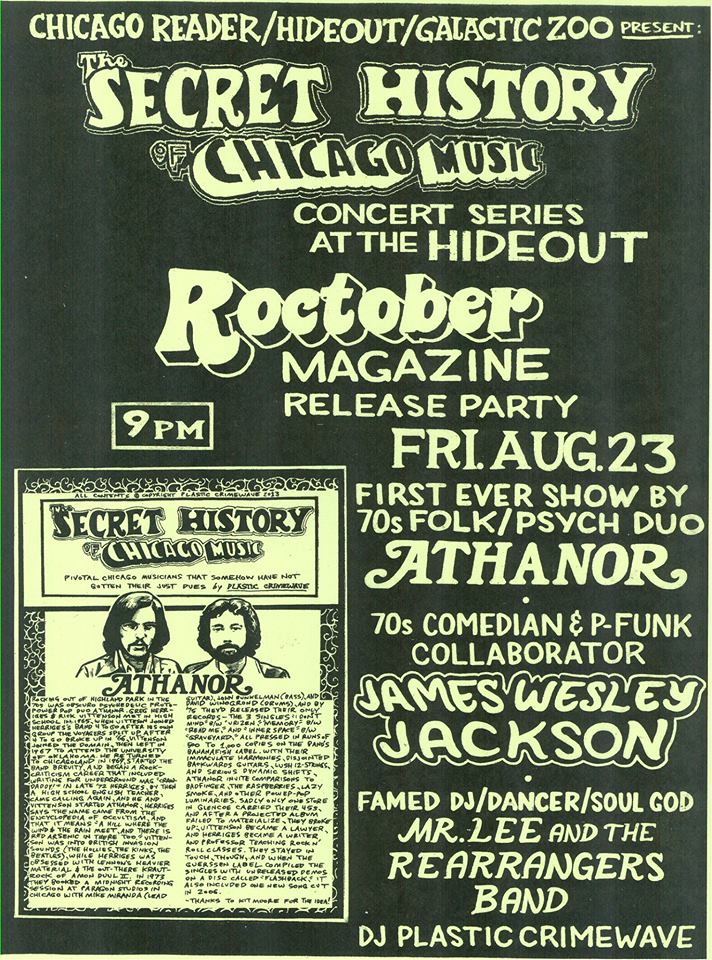
Rick: In addition to Athanor,for the past 15 years I’ve been playing local gigs every once in a while with fellow musicians. We basically play for charity events.
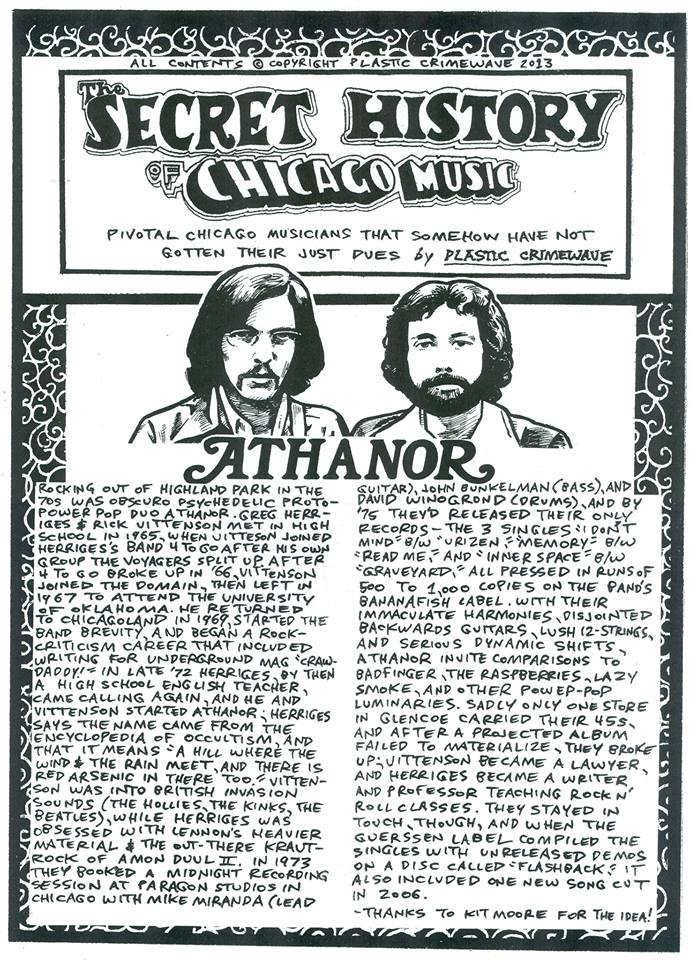
Both of you are probably following the latest music releases. Is there anything you’d like to share with our readers?
Greg: Rick and I both like our early influences, but I think we have some different opinions on new music. I enjoy songs by Tame Impala, Temples (I think we agree there), Elephant Stone, and Mystery Flavors.
Rick: Although I’m aware of what’s going on in the music world today (I’m particularly fond of The Temples and The Moons, I like anything the Gallagher brothers do, and I think Ryan Adams’ new album 1989, covering Taylor Swift’s latest, is absolute genius), I tend to gravitate toward reissues and previously unreleased material by bands and musicians I grew up listening to. This has been an amazing year for reissues, including Andrew Sandoval’s incredible production on Robin Gibb’s ‘Saved By The Bell’ and The Kinks ‘Anthology,’ the previously unreleased material on The Rolling Stones’ ‘Sticky Fingers,’ Jimmy Page’s Led Zeppelin remasters, David Bowie’s ‘Five Years,’ The Velvet Underground’s ‘Loaded: Reloaded,’ the Pretty Things box set ‘Bouquets From A Cloudy Sky,’ and the latest Dylan bootleg series offering, which I’m listening to now. And I can’t wait to watch and listen to the new ‘Beatles 1+.’
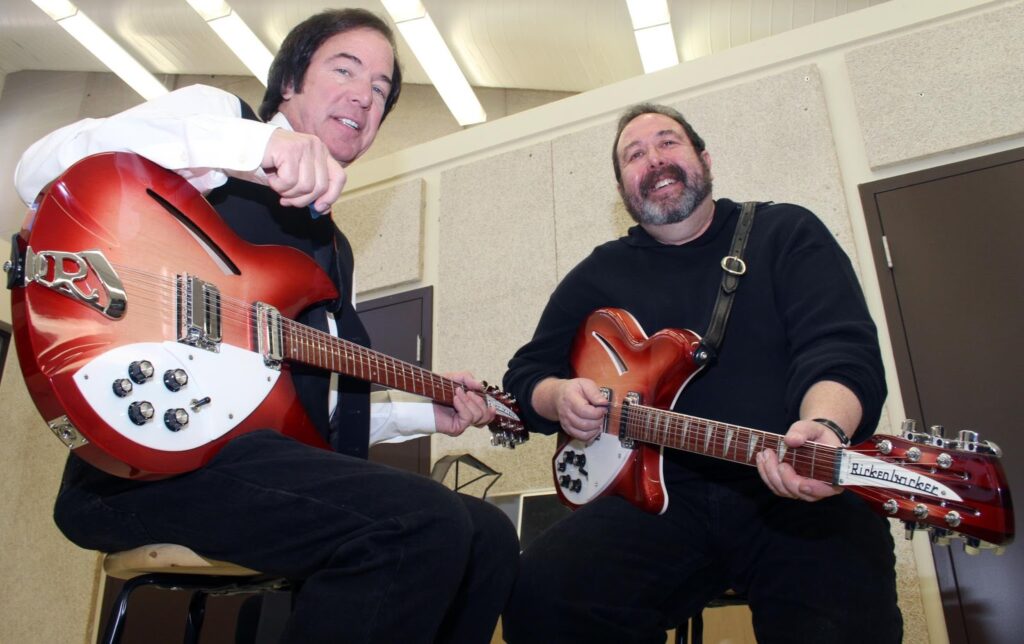
Last word is yours. Thank you.
Greg: Thanks, Klemen, for letting us sound off. We love rehearsing at our homes and going into the studio, but this album took 15 grueling months, and I need a break. The Chicago winter interrupted the continuity of recording by producing more snow than you can imagine, making travel difficult, and I suffered from laryngitis for five months due to a bad bronchial disorder. I had to sing on demand, and that wasn’t easy. But I remember George Harrison having the same problem during one of his ‘70s albums, and he pulled it off. He inspired me. I figured—what the hell?—and just went into the studio and sang my heart out. I wasn’t going to stop production.
So Rick and I, these old guys, just made this new, young album—a dream come true after 43 years—one brand new album, with both old and new songs never before released, performed with the best musicians we know. Thanks to our rhythm section on all tracks, Chris Drehobl (formerly of The Mauds) and John Belpedio (of Almost Joe and Mid-Life Crisis). Further thanks to our guest musicians and vocalists: Jeff Murphy (of Shoes), Quent Lang (formerly of The Mauds), Harry Reinhart (of Midnight and Skip Towne and the Greyhounds), and Brian Cremins (of Pet Theories). Special thanks to our engineer, John Towner, who played synthesized strings on several tracks. See you on the flipside.
Rick: After Athanor failed to get any attention in the ‘70s, I went to law school. But music was still my passion. In the lunchroom, most people talked about cases and court opinions, but I was able to find a couple of kindred spirits who loved music as much as I did. I once stood in line overnight with a fellow student to get tickets to see Bruce Springsteen, missing my first morning class. What we didn’t know was that when they took attendance, one of the students told the professor where we were. The next day, the two of us were taken to task and threatened with expulsion if either of us ever missed another class. “Your only excuse will be a death in the family… your own!”
Fast forward twenty years, and I was working at the American Bar Association, where I discovered that they had a house band called Malpractice. I quickly became a member of that group. We played for the staff at holiday parties, retirement parties, and other events. After my first live performance with the band, a fellow staffer came up to me and said, “So… you’re a lawyer pretending to be a rock star.” I said, “No… you’ve got it backwards. I’m a rock star pretending to be a lawyer.”
Some things never change. We’re living proof that dreams really can come true. But sometimes you just have to live long enough to get there.
Klemen Breznikar
Athanor Facebook
Guerssen Official Website / Facebook / Instagram / Twitter / Bandcamp / YouTube

